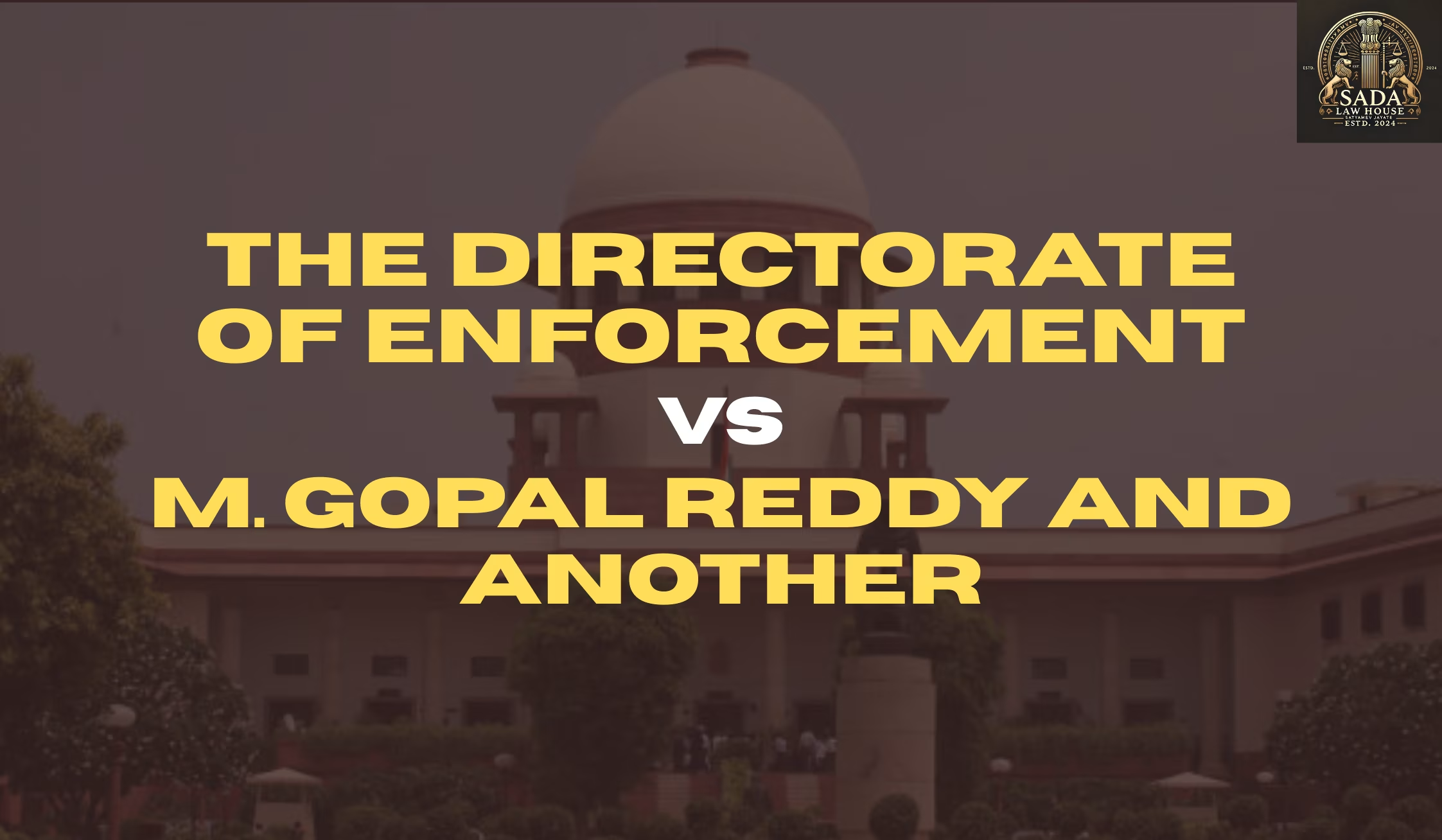Applicability of Section 45 of PMLA to Anticipatory Bail: Supreme Court Judgment in Directorate of Enforcement vs M. Gopal Reddy (2023)
- NISHA KUMARI
- 18 June 2025

Explore the Supreme Court of India’s landmark ruling on the applicability of Section 45 of the Prevention of Money Laundering Act, 2002 (PMLA), to anticipatory bail applications. Understand how this judgment impacts bail provisions in money laundering cases.
Introduction
The Supreme Court of India recently clarified a crucial aspect of bail law concerning money laundering offences. In the case of Directorate of Enforcement v. M. Gopal Reddy and Another (24 February 2023), the Court ruled on whether Section 45 of the Prevention of Money Laundering Act, 2002 (PMLA) applies to anticipatory bail under the Code of Criminal Procedure, 1973 (CrPC). This judgment reinforces strict bail conditions in money laundering cases and limits anticipatory bail availability for accused persons.
Background of the Case
Facts of the Case
This case arose from an FIR registered by the Economic Offences Wing (EOW), Bhopal, in relation to a ₹1020 crore e-tender scam. The scam involved collusion between officials managing the Madhya Pradesh government’s e-procurement portal and private companies, including M/s Max Mantena Micro JV, Hyderabad. The Enforcement Directorate (ED) launched a money laundering investigation under the PMLA, conducting multiple raids and seizing evidence.
M. Gopal Reddy, an accused and former Additional Chief Secretary of Madhya Pradesh’s Water Resources Department, sought anticipatory bail from the Telangana High Court. The High Court granted bail, ruling that Section 45’s stringent conditions did not apply to anticipatory bail. The Enforcement Directorate challenged this order in the Supreme Court.
Legal Issue
Does Section 45 of the PMLA Apply to Anticipatory Bail?
The core legal question was whether Section 45 of the PMLA, which imposes strict bail conditions, applies equally to anticipatory bail applications filed under Section 438 of the CrPC.
Supreme Court Judgment
Overruling of Earlier Precedents
The Supreme Court overturned the Telangana High Court’s decision, ruling that Section 45 of the PMLA applies fully to anticipatory bail. The Court observed that reliance on the Nikesh Tarachand Shah v. Union of India (2018) judgment was incorrect because it was overruled by the Constitution Bench’s decision in Vijay Madanlal Choudhary v. Union of India (2022), which upheld the constitutional validity of the amended Section 45.
Mandatory Bail Conditions Under Section 45
The Court emphasized the mandatory twin conditions for bail under Section 45(1) of the PMLA:
The Public Prosecutor must be given an opportunity to oppose the bail application.
The Court must be convinced that the accused is not guilty and unlikely to commit an offence while on bail.
Failure to meet these conditions renders the grant of anticipatory bail invalid in PMLA cases.
Conclusion
The Supreme Court’s ruling firmly establishes that the stringent bail conditions in Section 45 of the Prevention of Money Laundering Act, 2002 apply equally to anticipatory bail. This decision reinforces the rigorous approach needed to tackle money laundering offences and prevents accused individuals from easily obtaining anticipatory bail without fulfilling mandatory conditions.
The Telangana High Court’s order granting anticipatory bail to M. Gopal Reddy was set aside, underscoring the judiciary’s commitment to strict enforcement of anti-money laundering laws.
Case Laws






